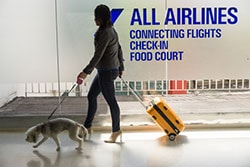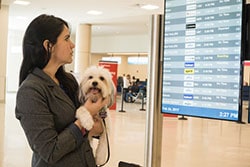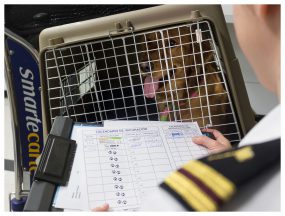You are using an outdated browser. Upgrade your browser today or install Google Chrome Frame to better experience this site.

United Kingdom, including England, Scotland, Wales, and Northern Ireland Traveler View
Travel health notices, vaccines and medicines, non-vaccine-preventable diseases, stay healthy and safe.
- Packing List
After Your Trip

There are no notices currently in effect for United Kingdom, including England, Scotland, Wales, and Northern Ireland.
⇧ Top
Check the vaccines and medicines list and visit your doctor at least a month before your trip to get vaccines or medicines you may need. If you or your doctor need help finding a location that provides certain vaccines or medicines, visit the Find a Clinic page.
Routine vaccines
Recommendations.
Make sure you are up-to-date on all routine vaccines before every trip. Some of these vaccines include
- Chickenpox (Varicella)
- Diphtheria-Tetanus-Pertussis
- Flu (influenza)
- Measles-Mumps-Rubella (MMR)
Immunization schedules
All eligible travelers should be up to date with their COVID-19 vaccines. Please see Your COVID-19 Vaccination for more information.
COVID-19 vaccine
Hepatitis A
Consider hepatitis A vaccination for most travelers. It is recommended for travelers who will be doing higher risk activities, such as visiting smaller cities, villages, or rural areas where a traveler might get infected through food or water. It is recommended for travelers who plan on eating street food.
Hepatitis A - CDC Yellow Book
Dosing info - Hep A
Hepatitis B
Recommended for unvaccinated travelers younger than 60 years old traveling to the United Kingdom. Unvaccinated travelers 60 years and older may get vaccinated before traveling to the United Kingdom.
Hepatitis B - CDC Yellow Book
Dosing info - Hep B
Cases of measles are on the rise worldwide. Travelers are at risk of measles if they have not been fully vaccinated at least two weeks prior to departure, or have not had measles in the past, and travel internationally to areas where measles is spreading.
All international travelers should be fully vaccinated against measles with the measles-mumps-rubella (MMR) vaccine, including an early dose for infants 6–11 months, according to CDC’s measles vaccination recommendations for international travel .
Measles (Rubeola) - CDC Yellow Book
Dogs infected with rabies are not commonly found in the United Kingdom.
If rabies exposures occur while in the United Kingdom, rabies vaccines are typically available throughout most of the country.
Rabies pre-exposure vaccination considerations include whether travelers 1) will be performing occupational or recreational activities that increase risk for exposure to potentially rabid animals and 2) might have difficulty getting prompt access to safe post-exposure prophylaxis.
Please consult with a healthcare provider to determine whether you should receive pre-exposure vaccination before travel.
For more information, see country rabies status assessments .
Rabies - CDC Yellow Book
Tick-borne Encephalitis
Avoid bug bites
Learn more about tick-borne encephalitis at your destination .
Tick-borne Encephalitis - CDC Yellow Book
Avoid contaminated water
Leptospirosis
How most people get sick (most common modes of transmission)
- Touching urine or other body fluids from an animal infected with leptospirosis
- Swimming or wading in urine-contaminated fresh water, or contact with urine-contaminated mud
- Drinking water or eating food contaminated with animal urine
- Avoid contaminated water and soil
Clinical Guidance
Airborne & droplet.
- Breathing in air or accidentally eating food contaminated with the urine, droppings, or saliva of infected rodents
- Bite from an infected rodent
- Less commonly, being around someone sick with hantavirus (only occurs with Andes virus)
- Avoid rodents and areas where they live
- Avoid sick people
Tuberculosis (TB)
- Breathe in TB bacteria that is in the air from an infected and contagious person coughing, speaking, or singing.
Learn actions you can take to stay healthy and safe on your trip. Vaccines cannot protect you from many diseases in the United Kingdom, so your behaviors are important.
Eat and drink safely
Food and water standards around the world vary based on the destination. Standards may also differ within a country and risk may change depending on activity type (e.g., hiking versus business trip). You can learn more about safe food and drink choices when traveling by accessing the resources below.
- Choose Safe Food and Drinks When Traveling
- Water Treatment Options When Hiking, Camping or Traveling
- Global Water, Sanitation and Hygiene | Healthy Water
- Avoid Contaminated Water During Travel
You can also visit the Department of State Country Information Pages for additional information about food and water safety.
Prevent bug bites
Although the United Kingdom is an industrialized country, bug bites here can still spread diseases. Just as you would in the United States, try to avoid bug bites while spending time outside or in wooded areas.
What can I do to prevent bug bites?
- Cover exposed skin by wearing long-sleeved shirts, long pants, and hats.
- Use an appropriate insect repellent (see below).
- Consider using permethrin-treated clothing and gear if spending a lot of time outside. Do not use permethrin directly on skin.
What type of insect repellent should I use?
- FOR PROTECTION AGAINST TICKS AND MOSQUITOES: Use a repellent that contains 20% or more DEET for protection that lasts up to several hours.
- Picaridin (also known as KBR 3023, Bayrepel, and icaridin)
- Oil of lemon eucalyptus (OLE) or para-menthane-diol (PMD)
- 2-undecanone
- Always use insect repellent as directed.
What should I do if I am bitten by bugs?
- Avoid scratching bug bites, and apply hydrocortisone cream or calamine lotion to reduce the itching.
- Check your entire body for ticks after outdoor activity. Be sure to remove ticks properly.
What can I do to avoid bed bugs?
Although bed bugs do not carry disease, they are an annoyance. See our information page about avoiding bug bites for some easy tips to avoid them. For more information on bed bugs, see Bed Bugs .
For more detailed information on avoiding bug bites, see Avoid Bug Bites .
Stay safe outdoors
If your travel plans in the United Kingdom include outdoor activities, take these steps to stay safe and healthy during your trip:
- Stay alert to changing weather conditions and adjust your plans if conditions become unsafe.
- Prepare for activities by wearing the right clothes and packing protective items, such as bug spray, sunscreen, and a basic first aid kit.
- Consider learning basic first aid and CPR before travel. Bring a travel health kit with items appropriate for your activities.
- If you are outside for many hours in the heat, eat salty snacks and drink water to stay hydrated and replace salt lost through sweating.
- Protect yourself from UV radiation : use sunscreen with an SPF of at least 15, wear protective clothing, and seek shade during the hottest time of day (10 a.m.–4 p.m.).
- Be especially careful during summer months and at high elevation. Because sunlight reflects off snow, sand, and water, sun exposure may be increased during activities like skiing, swimming, and sailing.
- Very cold temperatures can be dangerous. Dress in layers and cover heads, hands, and feet properly if you are visiting a cold location.
Stay safe around water
- Swim only in designated swimming areas. Obey lifeguards and warning flags on beaches.
- Do not dive into shallow water.
- Avoid swallowing water when swimming. Untreated water can carry germs that make you sick.
- Practice safe boating—follow all boating safety laws, do not drink alcohol if you are driving a boat, and always wear a life jacket.
Keep away from animals
Most animals avoid people, but they may attack if they feel threatened, are protecting their young or territory, or if they are injured or ill. Animal bites and scratches can lead to serious diseases such as rabies.
Follow these tips to protect yourself:
- Do not touch or feed any animals you do not know.
- Do not allow animals to lick open wounds, and do not get animal saliva in your eyes or mouth.
- Avoid rodents and their urine and feces.
- Traveling pets should be supervised closely and not allowed to come in contact with local animals.
- If you wake in a room with a bat, seek medical care immediately. Bat bites may be hard to see.
All animals can pose a threat, but be extra careful around dogs, bats, monkeys, sea animals such as jellyfish, and snakes. If you are bitten or scratched by an animal, immediately:
- Wash the wound with soap and clean water.
- Go to a doctor right away.
- Tell your doctor about your injury when you get back to the United States.
Reduce your exposure to germs
Follow these tips to avoid getting sick or spreading illness to others while traveling:
- Wash your hands often, especially before eating.
- If soap and water aren’t available, clean hands with hand sanitizer (containing at least 60% alcohol).
- Don’t touch your eyes, nose, or mouth. If you need to touch your face, make sure your hands are clean.
- Cover your mouth and nose with a tissue or your sleeve (not your hands) when coughing or sneezing.
- Try to avoid contact with people who are sick.
- If you are sick, stay home or in your hotel room, unless you need medical care.
Avoid sharing body fluids
Diseases can be spread through body fluids, such as saliva, blood, vomit, and semen.
Protect yourself:
- Use latex condoms correctly.
- Do not inject drugs.
- Limit alcohol consumption. People take more risks when intoxicated.
- Do not share needles or any devices that can break the skin. That includes needles for tattoos, piercings, and acupuncture.
- If you receive medical or dental care, make sure the equipment is disinfected or sanitized.
Know how to get medical care while traveling
Plan for how you will get health care during your trip, should the need arise:
- Carry a list of local doctors and hospitals at your destination.
- Review your health insurance plan to determine what medical services it would cover during your trip. Consider purchasing travel health and medical evacuation insurance for things your regular insurance will not cover.
- Carry a card that identifies, in the local language, your blood type, chronic conditions or serious allergies, and the generic names of any medicines you take.
- Bring copies of your prescriptions for medicine and for eye glasses and contact lenses.
- Some prescription drugs may be illegal in other countries. Call the United Kingdom’s embassy to verify that all of your prescription(s) are legal to bring with you.
- Bring all the medicines (including over-the-counter medicines) you think you might need during your trip, including extra in case of travel delays. Ask your doctor to help you get prescriptions filled early if you need to.
Many foreign hospitals and clinics are accredited by the Joint Commission International. A list of accredited facilities is available at their website ( www.jointcommissioninternational.org ).
Select safe transportation
Motor vehicle crashes are the #1 killer of healthy US citizens in foreign countries.
Be smart when you are traveling on foot.
- Use sidewalks and marked crosswalks.
- Pay attention to the traffic around you, especially in crowded areas.
- Remember, people on foot do not always have the right of way in other countries.
Riding/Driving
Choose a safe vehicle.
- Choose official taxis or public transportation, such as trains and buses.
- Make sure there are seatbelts.
- Avoid overcrowded, overloaded, top-heavy buses and minivans.
- Avoid riding on motorcycles or motorbikes, especially motorbike taxis. (Many crashes are caused by inexperienced motorbike drivers.)
- Choose newer vehicles—they may have more safety features, such as airbags, and be more reliable.
- Choose larger vehicles, which may provide more protection in crashes.
Think about the driver.
- Do not drive after drinking alcohol or ride with someone who has been drinking.
- Consider hiring a licensed, trained driver familiar with the area.
- Arrange payment before departing.
Follow basic safety tips.
- Wear a seatbelt at all times.
- Sit in the back seat of cars and taxis.
- When on motorbikes or bicycles, always wear a helmet. (Bring a helmet from home, if needed.)
- Do not use a cell phone or text while driving (illegal in many countries).
- Travel during daylight hours only, especially in rural areas.
- If you choose to drive a vehicle in the United Kingdom, learn the local traffic laws and have the proper paperwork.
- Get any driving permits and insurance you may need. Get an International Driving Permit (IDP). Carry the IDP and a US-issued driver's license at all times.
- Check with your auto insurance policy's international coverage, and get more coverage if needed. Make sure you have liability insurance.
- Avoid using local, unscheduled aircraft.
- If possible, fly on larger planes (more than 30 seats); larger airplanes are more likely to have regular safety inspections.
- Try to schedule flights during daylight hours and in good weather.
Helpful Resources
Road Safety Overseas (Information from the US Department of State): Includes tips on driving in other countries, International Driving Permits, auto insurance, and other resources.
The Association for International Road Travel has country-specific Road Travel Reports available for most countries for a minimal fee.
Traffic flows on the left side of the road in the United Kingdom.
- Always pay close attention to the flow of traffic, especially when crossing the street.
- LOOK RIGHT for approaching traffic.
Maintain personal security
Use the same common sense traveling overseas that you would at home, and always stay alert and aware of your surroundings.
Before you leave
- Research your destination(s), including local laws, customs, and culture.
- Monitor travel advisories and alerts and read travel tips from the US Department of State.
- Enroll in the Smart Traveler Enrollment Program (STEP) .
- Leave a copy of your itinerary, contact information, credit cards, and passport with someone at home.
- Pack as light as possible, and leave at home any item you could not replace.
While at your destination(s)
- Carry contact information for the nearest US embassy or consulate .
- Carry a photocopy of your passport and entry stamp; leave the actual passport securely in your hotel.
- Follow all local laws and social customs.
- Do not wear expensive clothing or jewelry.
- Always keep hotel doors locked, and store valuables in secure areas.
- If possible, choose hotel rooms between the 2nd and 6th floors.
Healthy Travel Packing List
Use the Healthy Travel Packing List for United Kingdom for a list of health-related items to consider packing for your trip. Talk to your doctor about which items are most important for you.
Why does CDC recommend packing these health-related items?
It’s best to be prepared to prevent and treat common illnesses and injuries. Some supplies and medicines may be difficult to find at your destination, may have different names, or may have different ingredients than what you normally use.
If you are not feeling well after your trip, you may need to see a doctor. If you need help finding a travel medicine specialist, see Find a Clinic . Be sure to tell your doctor about your travel, including where you went and what you did on your trip. Also tell your doctor if you were bitten or scratched by an animal while traveling.
For more information on what to do if you are sick after your trip, see Getting Sick after Travel .
Map Disclaimer - The boundaries and names shown and the designations used on maps do not imply the expression of any opinion whatsoever on the part of the Centers for Disease Control and Prevention concerning the legal status of any country, territory, city or area or of its authorities, or concerning the delimitation of its frontiers or boundaries. Approximate border lines for which there may not yet be full agreement are generally marked.
Other Destinations
If you need help finding travel information:
Message & data rates may apply. CDC Privacy Policy
File Formats Help:
- Adobe PDF file
- Microsoft PowerPoint file
- Microsoft Word file
- Microsoft Excel file
- Audio/Video file
- Apple Quicktime file
- RealPlayer file
- Zip Archive file
Exit Notification / Disclaimer Policy
- The Centers for Disease Control and Prevention (CDC) cannot attest to the accuracy of a non-federal website.
- Linking to a non-federal website does not constitute an endorsement by CDC or any of its employees of the sponsors or the information and products presented on the website.
- You will be subject to the destination website's privacy policy when you follow the link.
- CDC is not responsible for Section 508 compliance (accessibility) on other federal or private website.
We’re sorry, this site is currently experiencing technical difficulties. Please try again in a few moments. Exception: request blocked
Travel vaccination advice
If you're planning to travel outside the UK, you may need to be vaccinated against some of the serious diseases found in other parts of the world.
Vaccinations are available to protect you against infections such as yellow fever , typhoid and hepatitis A .
In the UK, the NHS routine immunisation (vaccination) schedule protects you against a number of diseases, but does not cover all of the infectious diseases found overseas.
When should I start thinking about the vaccines I need?
If possible, see the GP or a private travel clinic at least 6 to 8 weeks before you're due to travel.
Some vaccines need to be given well in advance to allow your body to develop immunity.
And some vaccines involve a number of doses spread over several weeks or months.
You may be more at risk of some diseases, for example, if you're:
- travelling in rural areas
- backpacking
- staying in hostels or camping
- on a long trip rather than a package holiday
If you have a pre-existing health problem, this may make you more at risk of infection or complications from a travel-related illness.
Which travel vaccines do I need?
You can find out which vaccinations are necessary or recommended for the areas you'll be visiting on these websites:
- Travel Health Pro
- NHS Fit for Travel
Some countries require proof of vaccination (for example, for polio or yellow fever vaccination), which must be documented on an International Certificate of Vaccination or Prophylaxis (ICVP) before you enter or when you leave a country.
Saudi Arabia requires proof of vaccination against certain types of meningitis for visitors arriving for the Hajj and Umrah pilgrimages.
Even if an ICVP is not required, it's still a good idea to take a record of the vaccinations you have had with you.
Find out more about the vaccines available for travellers abroad
Where do I get my travel vaccines?
First, phone or visit the GP practice or practice nurse to find out whether your existing UK vaccinations are up-to-date.
If you have any records of your vaccinations, let the GP know what you have had previously.
The GP or practice nurse may be able to give you general advice about travel vaccinations and travel health, such as protecting yourself from malaria.
They can give you any missing doses of your UK vaccines if you need them.
Not all travel vaccinations are available free on the NHS, even if they're recommended for travel to a certain area.
If the GP practice can give you the travel vaccines you need but they are not available on the NHS, ask for:
- written information on what vaccines are needed
- the cost of each dose or course
- any other charges you may have to pay, such as for some certificates of vaccination
You can also get travel vaccines from:
- private travel vaccination clinics
- pharmacies offering travel healthcare services

Which travel vaccines are free?
The following travel vaccines are available free on the NHS from your GP surgery:
- polio (given as a combined diphtheria/tetanus/polio jab )
- hepatitis A
These vaccines are free because they protect against diseases thought to represent the greatest risk to public health if they were brought into the country.
Which travel vaccines will I have to pay for?
You'll have to pay for travel vaccinations against:
- hepatitis B
- Japanese encephalitis
- tick-borne encephalitis
- tuberculosis (TB)
- yellow fever
Yellow fever vaccines are only available from designated centres .
The cost of travel vaccines that are not available on the NHS will vary, depending on the vaccine and number of doses you need.
It's worth considering this when budgeting for your trip.
Other things to consider
There are other things to consider when planning your travel vaccinations, including:
- your age and health – you may be more vulnerable to infection than others; some vaccines cannot be given to people with certain medical conditions
- working as an aid worker – you may come into contact with more diseases in a refugee camp or helping after a natural disaster
- working in a medical setting – a doctor, nurse or another healthcare worker may require additional vaccinations
- contact with animals – you may be more at risk of getting diseases spread by animals, such as rabies
If you're only travelling to countries in northern and central Europe, North America or Australia, you're unlikely to need any vaccinations.
But it's important to check that you're up-to-date with routine vaccinations available on the NHS.
Pregnancy and breastfeeding
Speak to a GP before having any vaccinations if:
- you're pregnant
- you think you might be pregnant
- you're breastfeeding
In many cases, it's unlikely a vaccine given while you're pregnant or breastfeeding will cause problems for the baby.
But the GP will be able to give you further advice about this.
People with immune deficiencies
For some people travelling overseas, vaccination against certain diseases may not be advised.
This may be the case if:
- you have a condition that affects your body's immune system, such as HIV or AIDS
- you're receiving treatment that affects your immune system, such as chemotherapy
- you have recently had a bone marrow or organ transplant
A GP can give you further advice about this.
Non-travel vaccines
As well as getting any travel vaccinations you need, it's also a good opportunity to make sure your other vaccinations are up-to-date and have booster vaccines if necessary.
Although many routine NHS vaccinations are given during childhood, you can have some of them (such as the MMR vaccine ) as an adult if you missed getting vaccinated as a child.
There are also some extra NHS vaccinations for people at higher risk of certain illnesses, such as the flu vaccine , the hepatitis B vaccine and the BCG vaccine for tuberculosis (TB) .
Your GP can advise you about any NHS vaccinations you might need.
Find out about NHS vaccinations and when to have them
Page last reviewed: 16 March 2023 Next review due: 16 March 2026
- Inspiration
- Destinations
- Places To Stay
- Style & Culture
- Food & Drink
- Wellness & Spas
- News & Advice
- Partnerships
- Traveller's Directory
- Travel Tips
- Competitions
Who can travel to the UK and what are the rules for entering?
By Abigail Malbon

Travel for UK residents is now far simpler than it was in 2021 – but who can enter the UK from overseas? Here we explain how the rules for travel to the UK works for non-residents.
Can I travel to the UK right now?
Since Monday 4 October 2021, the green and amber lists have no longer existed, meaning anyone can now enter without having to quarantine in a government-approved hotel as long as they're not coming from a red list country (there are no countries on the red list as of March 2022).

Since February 2022, travellers – whether vaccinated or not – do not need to quarantine before or after travelling to the UK. If they test positive for Covid in the UK it is no longer law to quarantine, although England's Chief Medical Officer Chris Whitty advises that people should continue to self-isolate if they test positive for coronavirus in England. In Scotland, the legal requirement to isolate was removed from Monday 21 March, while it is expected to end from Monday 28 March in Wales. In Northern Ireland, all legal restrictions were replaced by guidance from 15 February 2022.
Since 4am on Friday 18 March 2022 all travel rules in the UK have been lifted, meaning no travellers need to test, quarantine or fill in a passenger locator form , regardless of their vaccination status.
Can residents of a red list country enter the UK?
There are currently no red list restrictions in place for travel to England. Previously, the only people permitted to enter the UK from one of the countries on the red list were UK residents or British or Irish citizens. Anyone allowed to enter the UK from these countries had to quarantine in a government-approved hotel for 10 days, at a cost of £2,285. Failure to comply resulted in fines of up to £10,000.
However, there are currently no countries on the red list, and quarantine hotels will be fully stood down from the end of March, following the end of all Covid travel rules from Friday 18 March.
So are holidays to the UK allowed this year?
Yes – although bear in mind that some rules may apply – all governments within the UK have said they plan to bring back restrictions if necessary.
For now, if you’re booking a trip to the UK we recommend you ensure you have a flexible cancellation policy and good travel insurance with Covid cover .
Security Alert May 17, 2024
Worldwide caution, update may 10, 2024, information for u.s. citizens in the middle east.
- Travel Advisories |
- Contact Us |
- MyTravelGov |
Find U.S. Embassies & Consulates
Travel.state.gov, congressional liaison, special issuance agency, u.s. passports, international travel, intercountry adoption, international parental child abduction, records and authentications, popular links, travel advisories, mytravelgov, stay connected, legal resources, legal information, info for u.s. law enforcement, replace or certify documents.
Share this page:
United Kingdom Travel Advisory
Travel advisory july 26, 2023, united kingdom - level 2: exercise increased caution.
Reissued with obsolete COVID-19 page links removed.
Exercise increased caution in the United Kingdom due to terrorism.
Country Summary: Terrorist groups continue plotting possible attacks in the United Kingdom. Terrorists may attack with little or no warning, targeting tourist locations, transportation hubs, markets/shopping malls, local government facilities, hotels, clubs, restaurants, places of worship, parks, major sporting and cultural events, educational institutions, airports, and other public areas.
There is also a risk of isolated violence by dissident groups in Northern Ireland, focused primarily on police and military targets.
Read the country information page for additional information on travel to the United Kingdom.
If you decide to travel to the United Kingdom:
- Be aware of your surroundings when traveling to tourist locations and crowded public venues.
- Follow the instructions of local authorities.
- Monitor local media for breaking events and adjust your plans based on new information.
- Enroll in the Smart Traveler Enrollment Program ( STEP ) to receive Alerts and make it easier to locate you in an emergency.
- Follow the Department of State on Facebook and Twitter.com/Travelgov
- Review the Country Security Report for the United Kingdom.
- Visit the CDC page for the latest Travel Health Information related to your travel and return to the United States.
- Prepare a contingency plan for emergency situations. Review the Traveler’s Checklist .
Travel Advisory Levels
Assistance for u.s. citizens, united kingdom map, search for travel advisories, external link.
You are about to leave travel.state.gov for an external website that is not maintained by the U.S. Department of State.
Links to external websites are provided as a convenience and should not be construed as an endorsement by the U.S. Department of State of the views or products contained therein. If you wish to remain on travel.state.gov, click the "cancel" message.
You are about to visit:
Two dozen United Airlines passengers fell ill on flight, had been on cruise

Around two dozen passengers fell ill on a United Airlines flight from Vancouver, Canada to Houston, Texas on Friday.
Approximately 25 people traveling in a group of 75 had nausea, according to Capt. Sedrick Robinett of the Houston Fire Department. HFD evaluated three passengers upon the plane’s arrival at George Bush Intercontinental Airport but none were transported to the hospital, he said.
“Several passengers who had been on the same cruise and did not feel well were on United Flight 1528 from Vancouver to Houston Friday night,” United told USA TODAY in an emailed statement. The airline did not answer a question about what cruise line or ship the flyers had been traveling on before their flight.
“United Airlines is actively coordinating with health authorities to address the situation,” the airline’s statement continued. “As a precautionary measure, the aircraft will be removed from service and go through a deep cleaning before returning to service. Ensuring the health and safety of our passengers and crew remains our top priority.”
Is there a doctor on board?: Usually, yes. Here's why.
The Houston Health Department referred a request for comment to the Centers for Disease Control and Prevention.
"Public health officers from CDC’s Houston Port Health Station worked with EMS to evaluate ill passengers on board," a CDC spokesperson said in an emailed statement. "Most of the ill passengers reported mild GI symptoms. No passengers were noted to have a fever during the flight or upon public health assessment at landing. No passengers met CDC criteria for further public health follow-up. Passengers from the flight continued with their travel plans."
The news comes after dozens of passengers on a Condor flight from Mauritius to Frankfurt, Germany mysteriously became sick with nausea and vomiting last month.
Nathan Diller is a consumer travel reporter for USA TODAY based in Nashville. You can reach him at [email protected].
Official websites use .gov
A .gov website belongs to an official government organization in the United States.
Secure .gov websites use HTTPS
A lock ( ) or https:// means you've safely connected to the .gov website. Share sensitive information only on official, secure websites.
Traveling with Pets
Starting August 1, 2024 at 12:01AM ET, new rules go into effect. Use the DogBot below to determine what rules apply to your dog based on the dates of travel and where your dog is traveling from.

Photo Credit: Audilis Sanchez, CDC
Taking your dog or cat on a flight abroad? Make sure you have your pet’s documents when traveling internationally and returning home to the United States. Leave yourself plenty of time before the trip to take care of your pet’s required medical care and paperwork. Remember to start the process early.
First Stop—Your Vet’s Office
If you are traveling internationally, tell your veterinarian about your plans as soon as possible. Together, you can make sure your pet is healthy enough to travel and meets the requirements for your destination country and for your return to the United States. Requirements may include
- Blood tests
- Vaccinations
- Microchips for identification
- Health certificates
Airlines and countries often have different requirements, so make sure you know what the specific ones are.
Research How to Fly with Your Pet

Talk to your vet about your travel plans and your dog’s rabies vaccination. Photo credit: David Heaberlin, CDC
Give yourself plenty of time to do your homework before your trip. A great place to start is the Pet Travel website of the US Department of Agriculture’s Animal and Plant Health Inspection Service (APHIS).
Different airlines have different rules about whether and how a pet can travel. Depending on the airline, your pet may be able to travel on your flight either in the cabin or in the cargo hold. Confirm this ahead of time with your airline.
On airlines that allow pets to travel, only small dogs and cats that can fit in special carriers under the seat are allowed in the cabin. Their owners must care for them during any layovers. Some airlines may not allow them in the cabin and will transport them as cargo in a heated and ventilated hold. Cats and dogs may travel and rest better this way, since it is quieter and darker, according to the International Air Transport Association.

Research how to fly with your pet. Photo credit: Misty Ellis, CDC
Another way for your pet to travel is on a separate flight as an air cargo shipment. If this is your preference, or a requirement based on your dog’s size or the destination country’s rules, then get your pet used to the shipping kennel ahead of time. Make sure the door latches securely to avoid any mishaps in transit. Ask your veterinarian for advice about when to give food and water. If a pet is traveling as an air cargo shipment , you must make arrangements for pickup at the final destination.
Some US carriers don’t allow pets to be shipped between May and September, the hottest months for animals to travel in the Northern Hemisphere. No matter what time of year, safety is always a concern when pets travel by airplane. If absolutely necessary for a dog or cat to travel in cargo, it must be in a sturdy container with enough room to stand and sit, to turn around normally while standing, and to lie down in a natural position. For more information, visit the US Department of Agriculture pet travel website .
When waiting for a connecting flight, you may have to care for a pet traveling with you in the cabin, while the airline staff or ground handlers care for a pet traveling in cargo. Check with your airline(s) beforehand to see what is required.
Consider Your Pet’s Comfort

Consider your pet’s comfort when traveling. Photo credit: Misty Ellis, CDC
Loading and unloading can be the most stressful part of travel for animals. Consider these tips:
- Get your pet used to its carrier before the flight.
- Purchase flights with fewer connections or layovers.
- Pick departure and arrival times to avoid extreme heat or cold. For example, planning a nighttime arrival to a hot destination may be better for your pet.
- Consult with your veterinarian. The International Air Transport Association discourages the use of sedatives or tranquilizers because they could harm animals while in flight.
- Walk your pet before leaving home and again before checking in.
- If your pet is allowed in the cabin, check in as late as possible to reduce stress.
- If your pet will be transported as cargo, check in early so it can go to the quiet and dimly lit hold of the plane.
Cruise Ships and Travel by Sea
Different cruise ships have different rules about whether a pet or service animal can travel with you and what documents they require. Confirm this ahead of time with your cruise ship. If you travel with your pets internationally on a cruise ship or other maritime vessel, you will be required to meet federal entry requirements to enter or re-enter the United States with your pets. Note that CDC has temporarily suspended the importation of dogs arriving from countries that CDC considers high risk for dog rabies , including dogs that have visited a high-risk country in the past 6 months.
Requirements for Dogs Leaving the United States
CDC does not have requirements for dogs leaving the United States. However, if you plan to return to the United States with your dog, the dog will be required to meet the same entry requirements as dogs arriving from foreign countries (see below). If you plan to take your dog to a country at high risk for dog rabies , be sure to review the importation requirements before leaving the United States, because your dog may not be allowed to return to the United States due to the current temporary suspension , which applies to dogs that live in the United States and have traveled to high-risk countries, even if only for a short visit.
Visit the US Department of Agriculture website for pet entry requirements in foreign countries.
Requirements for Dogs Arriving in the United States

Meet the requirements for dogs entering the United States. Photo credit: Derek Sakris, CDC
Whether returning or coming to the United States, all dogs must appear healthy . There is a temporary suspension for dogs imported from countries that CDC considers high risk for dog rabies .
Some states may require vaccinations and health certificates. Check with your destination state’s health department before you leave on your trip.
Some airlines, cities, or states restrict certain breeds, so be sure to check before you travel.
The US Department of Agriculture has additional restrictions for some dogs arriving in the United States, such as working dogs and dogs intended for resale or adoption.
Requirements for Cats Arriving in the United States
Cats aren’t required by CDC to have a rabies vaccination certificate to enter the United States. However, most states and many other countries require them for cats, and CDC recommends that all cats be vaccinated against rabies. Be sure to check your destination’s requirements and ask your veterinarian before traveling.
Other kinds of pets
If your pet is not a cat or dog, there may be different requirements. Some animals , such as primates (monkeys and apes) or African rodents , won’t be allowed back into the United States. Even if they originally came from the United States, they can’t be brought back here as pets.

With careful planning, your pet can stay healthy and safe while traveling. Photo credit: Audilis Sanchez, CDC
Illness or Death of a Pet During Travel
Despite all precautions, pets sometimes get sick or even die on an airplane. Public health officials are required to make sure an animal didn’t die of a disease that can spread to people. They may have to do an animal autopsy or conduct other tests, at your cost, to figure out the cause of death. The animal’s remains often cannot be returned to you after this testing.
Think of Different Options
Make sure your pet is healthy enough to travel by air. If you have any doubts, consider leaving your pet with a trusted friend, family member, or boarding kennel during your trip, or taking another mode of transportation.
With careful planning, your pet will arrive both at its destination and return home healthy and safe.
- Information on Dog Importation for US Rescues, Shelters, and Adoption Agencies
- Information on Dog Importation for US Veterinary Clinics
- International Air Transport Association- Traveler’s Pet Corner
- Animal Transportation Association
- International Pet and Animal Transportation Association
- Centers for Disease Control and Prevention
- U.S. Department of Agriculture
- National Agricultural Library
- U.S. Fish & Wildlife Service
- U.S. Department of State
- U.S. Department of Transportation
- American Veterinary Medical Association
- CDC’s Healthy Pets, Healthy People website
- Travelers' Health
- Healthy Pets Healthy People
- Southern Border Health and Migration
- Port Health
- Division of Global Migration Health
To receive email updates about this page, enter your email address:
Exit Notification / Disclaimer Policy
- The Centers for Disease Control and Prevention (CDC) cannot attest to the accuracy of a non-federal website.
- Linking to a non-federal website does not constitute an endorsement by CDC or any of its employees of the sponsors or the information and products presented on the website.
- You will be subject to the destination website's privacy policy when you follow the link.
- CDC is not responsible for Section 508 compliance (accessibility) on other federal or private website.
Cookies on GOV.UK
We use some essential cookies to make this website work.
We’d like to set additional cookies to understand how you use GOV.UK, remember your settings and improve government services.
We also use cookies set by other sites to help us deliver content from their services.
You have accepted additional cookies. You can change your cookie settings at any time.
You have rejected additional cookies. You can change your cookie settings at any time.
Register to vote Register by 18 June to vote in the General Election on 4 July.
- Visas and immigration
- Travelling to the UK
Entering the UK
Your identity document (for example your passport or identity card) will be checked when you arrive at a UK port or airport to make sure you’re allowed to come into the country. It should be valid for the whole of your stay.
You may also need a visa to come into or travel through the UK , depending on your nationality.
Check which documents you’ll need to come to the UK .
You do not need to take any COVID-19 tests or fill in a passenger locator form. This applies whether you’re fully vaccinated or not.
What you can bring with you
What you can bring with you depends on where you’re travelling from. You must declare to customs:
- anything over your duty-free allowance
- banned or restricted goods in the UK
- goods that you plan to sell
- more than €10,000 (or its equivalent) in cash, if you’re coming from outside the EU
You and your baggage may be checked for anything you must declare.
Related content
Is this page useful.
- Yes this page is useful
- No this page is not useful
Help us improve GOV.UK
Don’t include personal or financial information like your National Insurance number or credit card details.
To help us improve GOV.UK, we’d like to know more about your visit today. Please fill in this survey (opens in a new tab) .
- mumbai News
Woman arrested at Mumbai airport for using fake documents to travel to UK

Visual Stories


IMAGES
COMMENTS
It is recommended for travelers who plan on eating street food. Hepatitis A - CDC Yellow Book. Dosing info - Hep A. Hepatitis B: Recommended for unvaccinated travelers younger than 60 years old traveling to the United Kingdom. Unvaccinated travelers 60 years and older may get vaccinated before traveling to the United Kingdom. Hepatitis B - CDC ...
If you are due to travel internationally to England, please visit their website for detailed information. On December 25, the Centers for Disease Control and Prevention (CDC) within the Department of Health and Human Services (HHS) issued an Order requiring proof of a negative COVID-19 test for all air passengers arriving from the UK to the U.S.
For additional information, please visit the CDC's webpage (PDF). The Department of State has issued a Level 3 Travel Advisory for the UK. The Centers for Disease Control and Prevention (CDC) has issued a Level 4 (Very High) Travel Health Notice for the United Kingdom due to COVID-19 advising travelers to avoid non-essential travel to Europe.
The UK has been on the Centers for Disease Control and Prevention (CDC)'s highest risk category for Covid, level 4 or "very high" since 19 July. The CDC said that vaccines approved by the US FDA ...
Here, we unpick all of the USA's latest entry requirements. The USA reopened to fully vaccinated UK travellers in November 2021. Despite being fully vaccinated, holiday makers must take a Covid test within one day of departure. Unvaccinated children can also travel to the USA and must also take a test if aged two or older.
5 April 2023. You do not need to take any COVID-19 tests to travel to England from mainland China. 17 March 2023. Updated rules for people travelling from mainland China announced.
The Transport Secretary, Grant Shapps, has today (17 September 2021) announced a simplified system for international travel in light of the success of the UK 's domestic vaccine rollout ...
Netherlands: Anyone arriving from the UK will need to have had a so-called PCR test to enter. These can take more than 24 hours to turn around, as they need to be processed in a lab. Belgium ...
The State Department raised its travel advisory for the United Kingdom to Level 4: Do Not Travel on Monday, aligning with an update made by the CDC earlier in the day. CNN values your feedback 1.
Passport validity requirements. To enter the US, your passport must be valid for the length of your planned stay. If you're travelling through another country on your way to or from the US ...
During 2020-2022, CDC used these authorities to restrict travel of people with COVID-19 and close contacts who were recommended to quarantine. These authorities were also used for mpox in 2022. Travel restrictions have also been used for other suspected or confirmed contagious diseases that pose a public health threat during travel, including ...
In March, the CDC cut off travel from the UK for foreign nationals, which brought travel from the UK to the US down 90%, from about 30,000 to 3,000 passengers a day, the official said.
Travel vaccination advice. If you're planning to travel outside the UK, you may need to be vaccinated against some of the serious diseases found in other parts of the world. Vaccinations are available to protect you against infections such as yellow fever, typhoid and hepatitis A. In the UK, the NHS routine immunisation (vaccination) schedule ...
There are currently no red list restrictions in place for travel to England. Previously, the only people permitted to enter the UK from one of the countries on the red list were UK residents or British or Irish citizens. Anyone allowed to enter the UK from these countries had to quarantine in a government-approved hotel for 10 days, at a cost ...
Foreign travel advice. Get advice about travelling abroad, including the latest information on coronavirus, safety and security, entry requirements and travel warnings. Search for a country or ...
Reissued with obsolete COVID-19 page links removed. Exercise increased caution in the United Kingdom due to terrorism. Country Summary: Terrorist groups continue plotting possible attacks in the United Kingdom.Terrorists may attack with little or no warning, targeting tourist locations, transportation hubs, markets/shopping malls, local government facilities, hotels, clubs, restaurants, places ...
CDC is the nation's leading science-based, data-driven, service organization that protects the public's health. CDC works 24/7 to protect America from health, safety and security threats, both foreign and in the U.S. About CDC. Organization and Mission. Leadership.
These rules apply to all dogs, including puppies, service animals, and dogs that left the United States and are returning. They also apply whether you are a U.S. citizen, legal U.S. resident, or foreign national. If you don't follow CDC's rules, your dog won't be allowed to enter the United States. If denied entry, your dog will be sent ...
At least 8 weeks before your trip: check the latest vaccine recommendations for the US (or the US Virgin Islands, Puerto Rico and American Samoa, Guam and the Northern Mariana Islands) see where ...
0:30. Around two dozen passengers fell ill on a United Airlines flight from Vancouver, Canada to Houston, Texas on Friday. Approximately 25 people traveling in a group of 75 had nausea, according ...
If you travel with your pets internationally on a cruise ship or other maritime vessel, you will be required to meet federal entry requirements to enter or re-enter the United States with your pets. ... Note that CDC has temporarily suspended the importation of dogs arriving from countries that CDC considers high risk for dog rabies, including ...
UK border control - passport checks, visas for entering, customs, transiting and layovers. ... You may also need a visa to come into or travel through the UK, depending on your nationality.
A woman, Satnam Kaur, was stopped from boarding a UK flight at Mumbai Airport due to fake documents, including e-Migrate letter, CDC-Seaman Book, and a fake joining letter from a shipping company ...